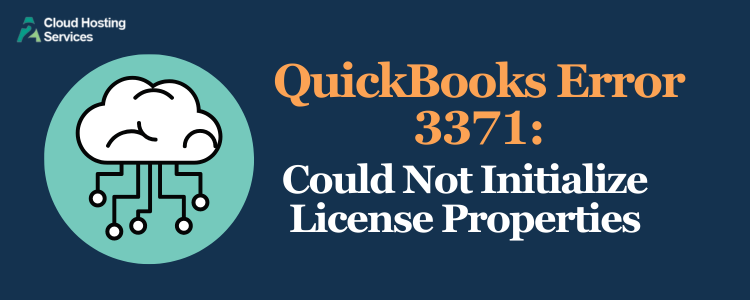Cloud Hosting is expanding rapidly and has become the benchmark for efficiency in the hosting world. Different companies across the IT landscape are shifting to cloud hosting technology, and analysts expect that the trend will continue in the future.
New advancements are being made in cloud hosting technology, and a tectonic transformation is expected to take place across the global market in the next decade. Moreover, the rise of new technologies, such as Artificial Intelligence (AI) and Machine Learning (ML), is also supposed to impact the hosting world.
In the present article, we will study a brief introduction to cloud hosting technology and review emerging trends that are supposed to transform it over the next decade.
Cloud Hosting Technology: Brief Technical Introduction
Cloud Hosting technology is different from traditional web hosting. It is, in fact, superior to traditional hosting & offers several distinct advantages.
In cloud hosting, you can run your website (or application) through multiple virtual servers spread across the cloud. Typically, several virtual machines (VMs) operate on a single physical server using an advanced technology called virtualization.
These virtual machines are isolated and can draw resources from a single pool to stabilize the website (or application) ‘s performance. Moreover, these VMs are located in different regions of the world, thereby bringing the website (or application) content faster to the user.
Depending on the requirement, users can adjust fresh websites and applications using cloud hosting technology without worrying about technical interference on the network.
Also Read:- QuickBooks Error while exporting Transactions Fixed.
Relevant Advantages Of Cloud Hosting Technology
Here are some of the most remarkable advantages of cloud hosting technology:
- Scalability: The biggest advantage offered by cloud hosting is that you can effortlessly utilize more or fewer resources as per your requirement. Since there are multiple virtual machines (VMs), resources can always be allocated according to the user demand without worrying about performance.
- Cost Efficiency: Cloud hosting models function on a pay-as-you-go basis, which means that you have to pay only for the resources that you actually utilize for your website (or application). In contrast, you have to pay upfront fees on a monthly (or yearly) basis in traditional web hosting.
- Easy Availability: Since cloud hosting providers maintain data centers in different geographical locations worldwide. You can access and utilize your website with greater speed and reliability.
- Reliability: Cloud hosting is highly reliable because it uses multiple virtual machines to manage the website (or application). Even if one server fails, another server on the network can fill in its place and provide optimum performance to the user.
- Security: Cloud hosting providers deploy robust security measures, such as firewalls, access control, multiple checkpoints, and Secure Socket Layers (SSL), to protect user data.
Future Developments In Cloud Hosting: Emerging Trends For The Next Decade
Cloud hosting technology is undergoing rapid transformation, and many new trends are emerging worldwide. These developments should improve cloud hosting, and all industries anticipate utilizing new improvements according to their technical requirements. Here are some common trends that will likely impact cloud hosting technology over the next decade:
Emergence Of Hybrid & Multi-Cloud Features
The new trend in cloud hosting is the rapid rise of hybrid & multi-cloud features as compared to public cloud. Companies are shifting to hybrid cloud hosting environments where they can combine their own technical infrastructure with the third-party hosting provider’s resources.
Similarly, multi-cloud hosting technology is changing the global market. In simple words, multi-cloud hosting allows users to benefit from multiple public cloud hosting providers without locking. Themselves with any single hosting provider.
Increased use Of Internet Of Things (IoT) technology
The number of devices with Internet Of Things (IoT) capability has increased, and cloud hosting providers are incorporating. The necessary changes to provide better features to users. With new features, the enhanced capabilities of cloud hosting are provided at a faster pace to users across the network.
Incorporation of serverless computing in cloud hosting
Serverless computing simply means that the cloud service provider can allocate resources to the user as per current demand. After incorporating this technique in cloud hosting, there is a better utilization of resources, thereby resulting in faster operations.
Artificial Intelligence & Machine Learning in Cloud Hosting
Artificial Intelligence and Machine Learning are transforming cloud hosting, and over the next decade, users can expect more features and faster execution times. The overall network performance will improve rapidly.
Quantum Computing in cloud hosting
Adopting Quantum Computing will improve all aspects of cloud hosting, enhancing efficiency and reliability for all users. New breakthroughs are constantly taking place in this field.
Improved security & compliance features
We’re implementing new security features in cloud hosting, enhancing control, intrusion detection, and data encryption. We anticipate users benefiting from effective security and compliance features over the next decade.
Emergence of self-service & easy management tools
Cloud hosting providers are developing self-service tools for users with limited technical knowledge. This will lead to the rapid proliferation and democratization of this technology worldwide.
Reduction in carbon footprint through sustainable features
Cloud hosting providers are also modifying their network infrastructure to reduce their carbon footprint, thereby contributing to environmental protection. Similar developments are also being made for cloud hosting users through enhanced tools.
In conclusion, the next decade is extremely crucial and transformative for cloud hosting. Fresh features are widely expected to broaden the scope of this technology for users around the world.

Lara Newman is a seasoned Cloud and QuickBooks Expert with a robust three-year tenure at A2 Cloud Hosting Services. Her expertise encompasses a broad range of cloud computing solutions, with a special focus on integrating QuickBooks into diverse business environments. Lara’s dedication to optimizing operational efficiencies through cloud technology has been instrumental in driving digital transformation for numerous clients. Lara continues to be a pivotal asset to the company, leading the way in cloud services excellence.



